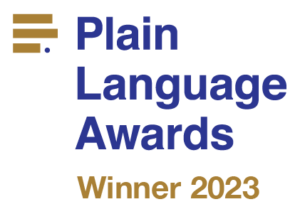How much do editing and proofreading cost?
If you’re thinking of working with an editor on your document, the chances are that cost is one of your main considerations. People often contact me with a brief description of their project and ask me how much it will cost to edit. I always say, ‘It depends.’ There are several factors that affect the cost, and I usually need more information before I can provide a quote.
Factors that determine the cost of editing and proofreading
The type of editing or proofreading service you need
The terms ‘editing’ and ‘proofreading’ are sometimes used interchangeably, but they are actually different tasks that take place at different times during the writing process. Documents at an early-draft stage often need structural editing; complete and final draft documents will need copyediting; and copyedited documents need proofreading before you finalise them.
The type of service you need influences how many ‘rounds’ of editing you’ll need. An early draft may need three or more rounds of editing before it is ready to submit or publish; a near-final document will probably need a copyedit plus a proofread. Each round of editing takes time, which affects the cost.
Some editors offer extra services like formatting your document or checking facts and references. These can be useful extras if you don’t want to do this work yourself, but they will increase the cost of the work.
Another factor to consider is how specialist the content is, and whether you need someone familiar with the content to edit it. Different types of editing and proofreading involve different skills and knowledge, which can also affect the cost. Make sure you find an editor who is experienced in the type of service you need.
What your editing project involves
People are often surprised when I say how long it will take me to edit or proofread their document. Editing takes much longer than reading. Think about how long it would take you to carefully read a 100-page report. Now imagine you are also editing every sentence and, in many cases, revisiting sentences and paragraphs once you’ve read content further into the document. If you’re still not convinced, look at this proofreading checklist for an idea of all the things that editors and proofreaders look at.
Like any service, the cost of editing is closely related to the time it takes. The main factors that affect the time needed are:
- the length of the document (words or pages)
- the quality of the writing
- the number of contributing writers
- the complexity of the content
- the type of content (for example, tables, references and diagrams take longer to edit than the equivalent amount of text)
- the number of times the document needs editing.
The type of editor you want to work with
Editors charge very different rates for their services. Like any profession, the cost of an experienced, highly skilled or specialist editor may be considerably more than someone who is new to the profession. If you’re unsure about an editor’s expertise, ask for details about their qualifications or for testimonials from their recent clients. You can also check if the editor’s skills have been accredited by a professional organisation like the Institute of Professional Editors.
You may not need to meet your editor, which means you can work with someone anywhere in the world. Your editor’s location can also affect their price, as their charges will be tied up with their cost of living.
The Institute of Professional Editors, which predominantly serves editors in Australia and New Zealand, has calculated how much freelance editors need to charge to run a sustainable business. These pay rates are a useful guide if you’re unsure whether you’re being quoted a reasonable price.
How your editor charges
Editors charge for their services by quantity (word or page), time (hour or day) or project. The clearer you are about the scope of work you need, the more accurate the estimate you can expect to receive. Editors will want to see your document, or a sample of it, before they quote, to make sure they give you a realistic price based on your work rather than simply a document of its size.
If you’re working to a tight deadline, some editors will charge more to work long days, evenings or weekends to help you get your project finished on time.
What you can do if your budget for editing isn’t enough
So, the cost of editing depends on the quality of your writing, the type of service you need, the number of rounds of editing involved, the length of your document, the complexity and type of content, and the person you want to hire. You now get an idea that the cost will vary enormously from project to project and editor to editor.
Here are some ways that to keep the cost of editing down.
- Plan your writing, and use your plan to write for your intended audience and achieve the objectives in your plan.
- Develop the best possible draft before you hand it to an editor. This includes cutting content that doesn’t contribute to your objectives, and rearranging content to achieve the structure in your plan.
- Tell your editor about the problems you see with your draft, so they can tune into what needs fixing when they work on your document.
- Discuss what services an editor can provide that will fit your budget and make the biggest difference to your project. Then decide what you can do yourself.
Capire is a leading New Zealand writing consultancy for governments, NGOs and international development agencies. We help organisations transform their complexity into plain English. Find out more about how we can help your organisation or sign up for our newsletter to get more tips to improve your writing.























